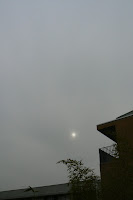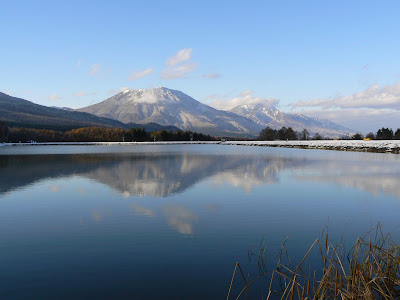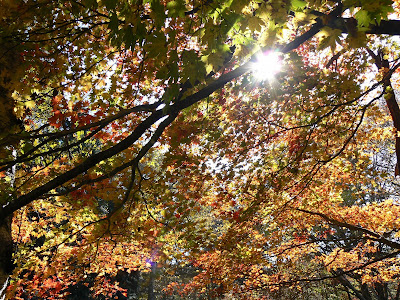
For any soul contemplating the hermitic existence, I could do no better than recommend the far north-west of Scotland. Further east the landscape is barren, flattened by fierce Atlantic winds. But from Cape Wrath, at the very tip of the mainland, south to the Sound of Arisaig, the coastline feathers like wet paper, creating a pattern of sea lochs, islands, and inaccessible neuks, protected by the Outer Hebrides. Here a person could find a place to be alone, as wild and beautiful as any other in the world.
It was on one of those larger islands, Skye, with its Red and Black Cullins and shy puffins, that a hermit made his home for the past 20 years. The Leopard Man of Skye was a fixture of my youth: a crazily tattooed former soldier who had covered most of his body in big cat markings, living an ascetic existence in a ruined bothy, but surfacing occasionally to vex the press and earn a few pennies to sustain his solitude. This week
Tom Leppard tickled the media one final time, after it transpired that - at the age of 73 - he had forfeited isolation for the more practical benefits of sheltered accommodation in a nearby village.
The practice of living one's life in seclusion is arcane in its roots. According to the Tarot deck, the figure of the Hermit represents prudence. From the questing knights errant of medieval romances, meeting world-renouncing oracles along their way, to Nietzsche's Zarathustra, who emerged from seclusion to proselytise gamely, hermits have always appeared in literature as guides and counsels. In early Christian tradition, the hermitic way was a precursor to the more clubbable monastic experience. But these days, the notion of removing oneself from society, whether for religious, philosophic or individual reasons, is anathema.
Total solitude is considered the preserve of the mad, the extremely devout or the deeply unhappy. We live in a culture that values being witnessed above all other things. Whether that be Jade Goody's cervical cancer diagnosis on a live "reality" show, or Kerry Katona's slurring breakdown on This Morning, the current ethic tells us no event in our personal lives is valid unless we've texted 10 friends about it and proffered it to YouTube for general derision.
In our timetabled lives, a plethora of technology offers a distortion of genuine closeness. An email sent from one individual in a particular state of mind reaches another in quite a different one, and this we call keeping in touch. It's good for consumerism, and it's good for surveillance. Yet such desperate binding has little to do with the things we really crave: family, community, a society that concerns itself with more than cash and flash. And it also denies the transfiguring qualities of aloneness.
It is an irony that, despite the atomised, estranged nature of contemporary life, we have forgotten the value of retreat, while failing to differentiate the qualities of solitude from those of loneliness. Perhaps because it is something we all fear and consider evidence of failure, loneliness - though it can happen to those with crowded lives as well as quieter ones - is seldom discussed.
While Tom Leppard's method of retreat was extreme, he insists he was never lonely. Of course, love and trust are essential to the human experience, particularly at a time when those less intimate but similarly sustaining bonds of neighbourliness and community are being eroded. But we cannot define our existence only in relation to other people. As the renowned psychiatrist Anthony Storr argued, intimate personal relationships are but one source of wellbeing. The capacity to be alone is also fundamental to development.
Storr observed that, while there has been much research into children's relationships with their parents and with other children, there is little discussion of whether it is valuable for them to be alone. "Yet if it is considered desirable to foster the growth of the child's imaginative capacity," he wrote, "we should ensure that our children, when they are old enough to enjoy it, are given time and opportunity for solitude."
But solitude fosters not only creativity. It also relates to an individual's capacity to connect with, and make manifest, inner feelings and impulses. To experience a contented, relaxed sense of being alone offers an opportunity for self-realisation, and is as much a mark of maturity as the ability to sustain relationships with others.
What is noxious about our modern climate is that it militates against genuine solitude as well as genuine intimacy. If we take the time to look beyond the bizarre tattoos, the story of Tom Leppard has much to teach us about both.




















 For any soul contemplating the hermitic existence, I could do no better than recommend the far north-west of Scotland. Further east the landscape is barren, flattened by fierce Atlantic winds. But from Cape Wrath, at the very tip of the mainland, south to the Sound of Arisaig, the coastline feathers like wet paper, creating a pattern of sea lochs, islands, and inaccessible neuks, protected by the Outer Hebrides. Here a person could find a place to be alone, as wild and beautiful as any other in the world.
For any soul contemplating the hermitic existence, I could do no better than recommend the far north-west of Scotland. Further east the landscape is barren, flattened by fierce Atlantic winds. But from Cape Wrath, at the very tip of the mainland, south to the Sound of Arisaig, the coastline feathers like wet paper, creating a pattern of sea lochs, islands, and inaccessible neuks, protected by the Outer Hebrides. Here a person could find a place to be alone, as wild and beautiful as any other in the world.





























